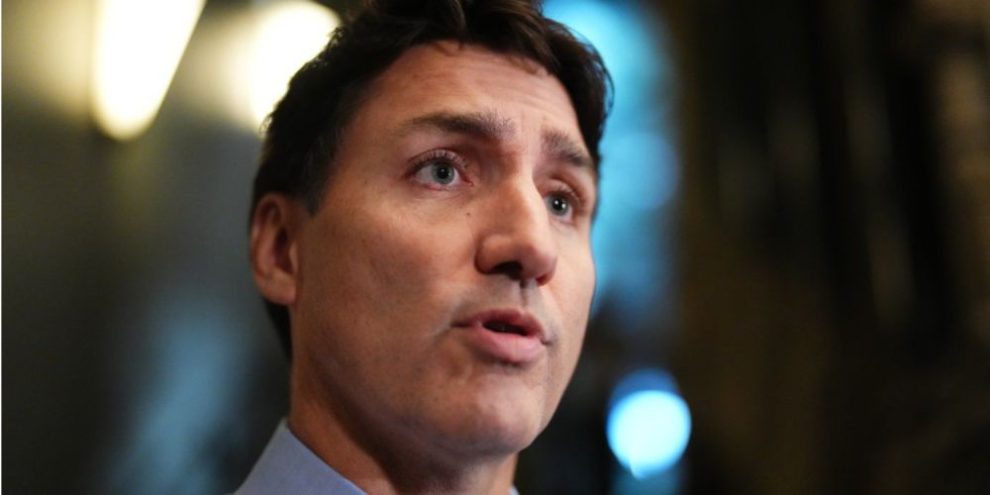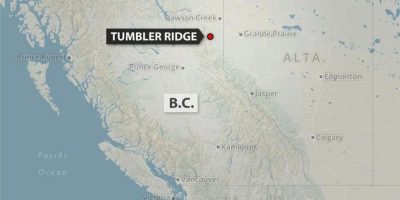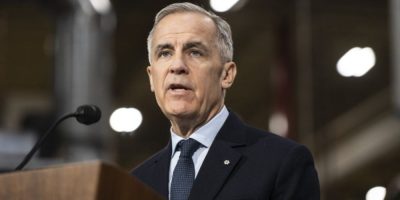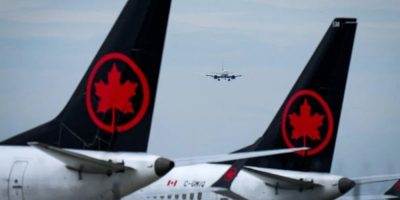
Prime Minister Justin Trudeau condemned Iran's missile attack on Israel Wednesday, but said the international community must do everything it can to help avoid a bigger regional war.
Exchanges of fire between Israel and Hezbollah in Lebanon over the last year erupted into broader violence in the last week as Israel ramped up its campaign against Hezbollah by air and Tuesday began sending in ground troops.
Also on Tuesday, Iran launched some 200 ballistic missiles at Israel, and warned of a "harsher" attack if Israel responds in kind.
"It is further destabilizing action by this terrorist regime in the region, putting civilians at risk, running the risk of a wider war," Trudeau said after speaking with this G7 counterparts in a joint call Wednesday morning.
"Obviously, Israel has the right to defend itself against these attacks. At the same time, we have to try and do everything we can to avoid a wider war, to protect civilians and to get humanitarian aid into affected regions."
Officials in Washington said U.S. destroyers assisted in Israel's defence, while the U.K. defence secretary said British forces played a part but did not specify what. Defence Minister Bill Blair said Canadian forces were not involved at all.
Trudeau said in his call with other G7 leaders, all agreed the international community must do everything it can to achieve peace and stability in the region. That includes reiterating calls for a ceasefire and pushing for a two-state solution where both Israel and a Palestinian state can exist safely.
Italian Prime Minister Giorgia Meloni, who holds the rotating presidency of the G7, maintains that a diplomatic solution is still possible.
Earlier in the day, UN Secretary-General Antonio Guterres told an emergency meeting of the UN Security Council that in just a week the alarming situation in Lebanon has gone from bad "to much, much worse," and called for an end to the hostilities.
"The sickening cycle of escalation after escalation that is leading the people of the Middle East straight over the cliff" has to stop, he said.
Canada's Foreign Affairs Minister Mélanie Joly acknowledged Wednesday that Israel has already vowed that Iran would face "severe consequences" for its attack and that it would retaliate.
"Canada's role right now, Canada's goal, is to make sure that there's no full-scale war in the Middle East, and so that's why we'll continue to engage diplomatically," Joly said.
The rapid escalation in the conflict comes just days before the one-year anniversary of the Oct. 7 Hamas attack that saw 1,200 people killed and 250 taken hostage in Israel.
The attack sparked immediate retaliation from Israel in the besieged Gaza Strip, where tens of thousands have since been reported dead and millions have been displaced.
The international community has harboured concerns that the Israel-Hamas war would lead to a broader regional conflict in the Middle East for the last year.
With the massive increase in hostilities in Lebanon and the latest attack on Israel from Iran, those fears are coming true.
Israeli airstrikes have been reported in recent days in Gaza to the south, Lebanon to the north and Syria to the east.
Joly once again called on Canadians who are still in Lebanon to accept help to leave the country. Since Friday, Global Affairs Canada has been helping citizens book plane tickets out of Lebanon.
So far more than 400 Canadians have left through the airport in the Lebanese capital of Beirut, and roughly 300 more were due to leave on the next flights, Joly said. All the flights are destined for Istanbul.
Joly's department estimates there are as many as 45,000 Canadians in Lebanon, and has warned in the past that Canada may not be able to help them escape if commercial flights are grounded. The government has been preparing a possible evacuation plan for months.
Still, many of the seats the government has offered on flights out of Lebanon remain vacant, Joly said, begging those who are offered a seat to take it.
"I know it's difficult. I know it's difficult to leave your loved ones," she said.
"Please, this is about your own safety and the safety of your loved ones."
This report by The Canadian Press was first published Oct. 2, 2024.
— With files from The Associated Press





